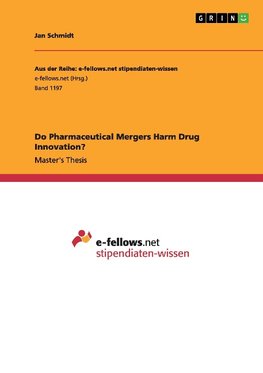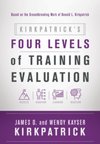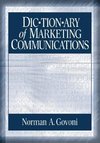
-
 Anglický jazyk
Anglický jazyk
Do Pharmaceutical Mergers Harm Drug Innovation?
Autor: Jan Schmidt
Master's Thesis from the year 2013 in the subject Business economics - Miscellaneous, grade: 8,5 (NL, äquivalent zu 1,2), Utrecht University (Law, Economics and Governance), course: Mergers & Akquisitions, language: English, abstract: The number and volume... Viac o knihe
Na objednávku
25.92 €
bežná cena: 28.80 €
O knihe
Master's Thesis from the year 2013 in the subject Business economics - Miscellaneous, grade: 8,5 (NL, äquivalent zu 1,2), Utrecht University (Law, Economics and Governance), course: Mergers & Akquisitions, language: English, abstract: The number and volume of pharmaceutical companies' mergers and acquisitions have reached exorbitant magnitudes in the last decade, with estimations of over 1,300 deals worth US$ 690 billion between 2000 and 2009.1 The biggest transaction, valued at US$ 66.7 billion2, occurred in 2009 when Pfizer bought Wyeth. The sheer dimension of transactions in this sector, being subject to significant public interest, poses questions about the motivations behind these deals, which are mostly believed to be countermeasures for patent expirations, as well as the impact on drug innovation.
Even though, the regular object of interest regarding mergers is the shareholder value, in this specific case drug innovation is of particular interest as it does not only influence the future prospects of the pharmaceutical companies but also long term public health. Hence, the objective of this thesis is to discover what the impact of pharmaceutical mergers on R&D intensity and efficiency of the acquiring organization and on the pharmaceutical industry as a whole is.
- Vydavateľstvo: GRIN Verlag
- Rok vydania: 2015
- Formát: Paperback
- Rozmer: 210 x 148 mm
- Jazyk: Anglický jazyk
- ISBN: 9783656962175











